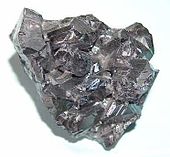February's Health Genie: Zinc
Dear Genie,
 I want to help my family miss less school and work. There are so many products in the cold and flu section. I am unfamiliar with most. My kids would appreciate it if I didn’t make them take so many different supplements every time a cold is going around. They get exasperated if I offer too many remedies. My wife won’t take anything that is not backed by research. Can you suggest one supplement that could help us this season?
I want to help my family miss less school and work. There are so many products in the cold and flu section. I am unfamiliar with most. My kids would appreciate it if I didn’t make them take so many different supplements every time a cold is going around. They get exasperated if I offer too many remedies. My wife won’t take anything that is not backed by research. Can you suggest one supplement that could help us this season?
Thanks,
Devoted Dad
Dear Devoted,
Zinc is one of the supplements most validated by research for supporting immune response to colds and flus. Research suggests that one way zinc shortens cold duration is by directly inhibiting rhinovirus, which is to say that contact with zinc is bad for the cold virus. It also seems to reduce inflammation in the sinus tissue that produces mucous. The result would be more comfortable sinuses and a less runny, drippy nose. Mild zinc deficiency can result in suppressed immune function by lowering the function important immune system cells: macrophages, neutrophils and natural killer cells.
Zinc is an essential dietary mineral available in many forms and delivery methods. The most impressive statistical figure associated with cold and flu relief is that zinc may reduce the duration of cold and flu symptoms by 42%. This figure has been associated with both zinc gluconate and zinc acetate forms, in separate trials. The recent buzz about zinc is that gluconate is the best. Most zinc supplements at City Market include this form. Some also contain zinc acetate. There is long standing evidence for the merit of the main forms, gluconate, acetate, picolinate and sulfate. The National Institute of Health holds that there is not sufficient evidence to call one form more effective.
Be careful to use an age appropriate dose in a way that increases efficacy and lessens the potential for nausea. The RDA (Recommended Daily Allowance) values are as follows: 0-6 months 2mg; 7-12 months 3 mg; 1-3 years 3 mg; 4-8 years 5mg; 9-13 years 8 mg; 14-18 years 11mg for males, 9 mg for females; adults 11mg for males, 8 mg for females; except in pregnancy and lactation 11-13 mg (NIH, 2011). Taking zinc with food reduces the risk of nausea. Most consume adequate zinc in their diet, and can safely use zinc supplements for a week or so as needed. Our bodies do not store zinc for long.
A few groups are more likely to be low in zinc. Children older than 7 months that are exclusively breast fed may need a zinc supplement (NIH, 2011). Women taking oral contraceptives may have reduced zinc absorption as a result of increased blood copper caused by some pills. (Haas, MD). People with impaired digestion, including those with Crohns disease and ulcerative colitis, and many elderly people experience reduced absorption of zinc as well. (Hass, MD, 2006)
Vegetarians may require up to 50% above the RDA. Phytates, one of many types of antioxidant compounds, high in legumes and whole grains, reduce the absorption of zinc. Soaking and rinsing legumes, seeds and grains reduces the phytates consumed, increasing total absorption of zinc. (NIH, 2001) Milk and eggs may also reduce zinc absorption. Generally, meat and seafood are the foods which supply the greatest amount of bio-available zinc.
Zinc helps healing of the skin and throat and can be absorbed locally by these tissues. Lozenges are the most popular way of taking zinc. My favorite delivery method is a throat spray. It is a direct application for the throat and possibly the most direct, safe, delivery for the sinuses. Throat sprays and lozenges may be less nauseating than tablets or capsules. Zinc sprays are popular with singers for throat and vocal cord recovery (Haas, MD, 2006). Not long ago, a greater selection of zinc nasal sprays were available, but these have become less popular since 2009, when the FDA recalled three zinc nasal sprays after intranasal use caused loss of sense of smell in some. The other delivery methods have not caused loss of smell. (NIH, 2001)
Other benefits of zinc include support of skin healing and skin health, especially in those with acne or dandruff, and support of male and female reproductive health. If zinc is not the answer you were looking for, please see the wellness staff for other suggestions!
Good Luck!
Health Genie
Sources:
- Hass, Elson, M, MD. 2006. Staying Health with Nutrition. Celestial Arts, Toronto.
- Hemila, Harri. 2011. Zinc Lozenges May Shorten the Duration of Colds: A Systematic Review. The Open Respiratory Medicine Journal, May 5, 2011, 51-58.
- Macknin, M, MD., Piedmonte, MA., Calendine, C., Janosky, J.PhD., Wald, E. MD. Zinc Gluconate Lozenges for Treating the Common Cold in Children: A Randomized Controlled Trial. Journal of the American Medical Association. June 24, 1998 –Vol 279, No. 24.
- National Institute of Health, Office of Dietary Supplements. 2011. Zinc Fact Sheet: Health Professionals.